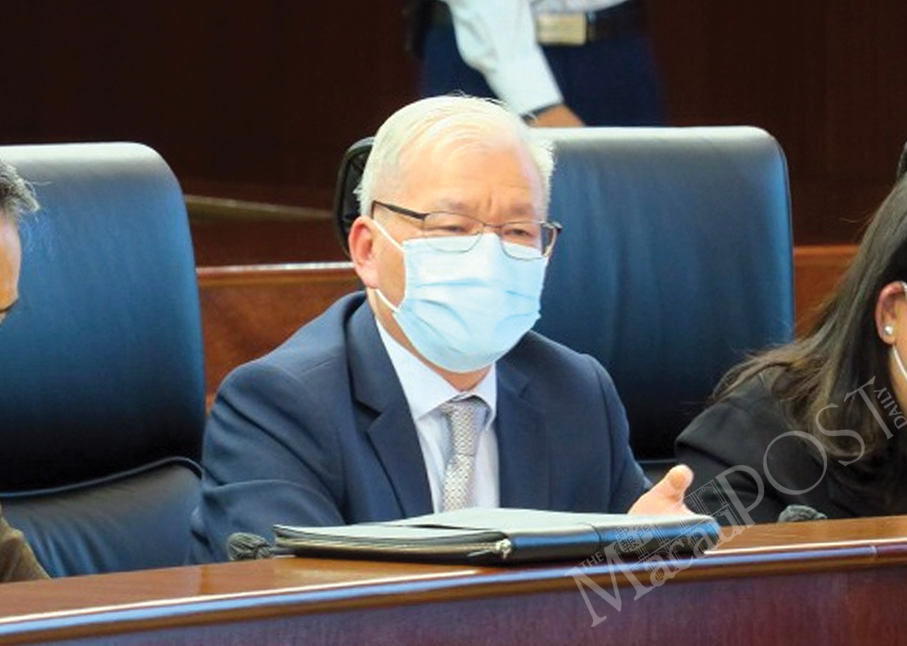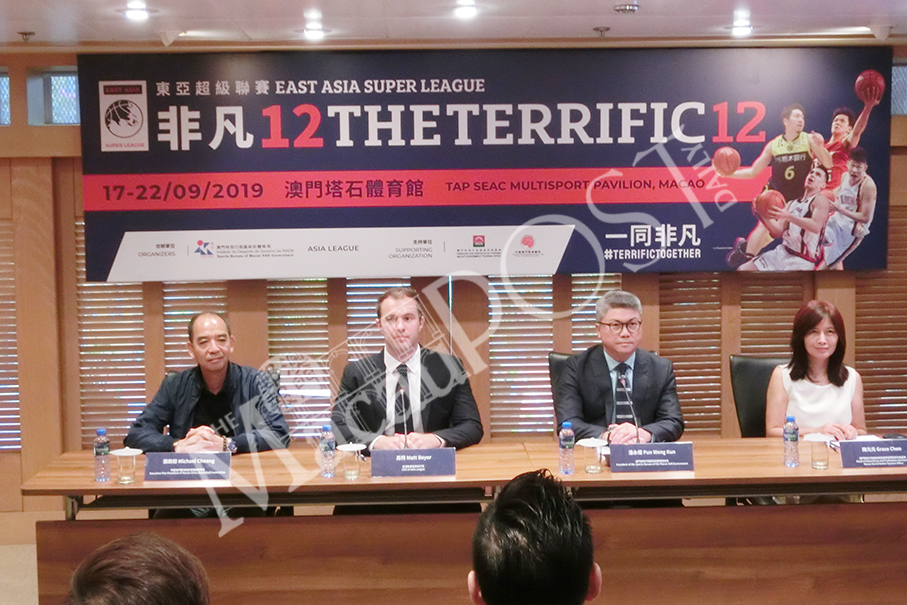Labour Affairs Bureau (DSAL) Director Wong Chi Hong said yesterday that the government plans to include more kinds of jobs in its Subsidised-Training Scheme in response to the development of intelligent building construction in recent years and also to help construction workers upgrade their technological skills.
Wong made the remarks during a Q&A plenary session in the legislative’s hemicycle yesterday.
Public Works Bureau (DSOP) Deputy Director Luís Manuel Silva Madeira de Carvalho said that as of last month about 11,000 workers were employed on public works projects, of whom about 2,500, or 22 percent, were locals, while about 78 percent were non-resident workers (NRWs).
Carvalho underlined that large-scale public works projects are different to those that are smaller and more homogeneous in their scope, adding that the number and type of workers employed in each phase of a large-scale public works project vary considerably due to the different requirements, machinery and skills required on the project’s different phases.
Carvalho added that it was not practical to apply a standardised approach to different projects, which would also affect the project’s progress and costs.
Carvalho also told lawmakers that in order to provide more employment opportunities for local workers, the bureau gives priority to local workers in the tenders of public works projects and has split some public works projects into several parts, such as superstructure or basement projects, but cautioned that the splitting of projects could increase administrative costs.
Wong underlined that the DSAL had successfully matched 5,762 locals with jobs as of last month, adding that his bureau will continue to check whether the requirements and remuneration packages are reasonable for employees and inform applicants of jobs if suitable positions are available.
According to Wong, of the 40,000 non-resident workers (NRWs) laid off since 2020, about 30,000 were non-professional staff, leaving about 153,000 NRWs currently still in Macau.
DSAL Acting Deputy Director Lei Lai Keng noted that among the NRWs who were laid off, 7,300 were from the gaming industry and other service sectors. Meanwhile, employment in the education sector has increased by nearly 30 percent recently, Lei said.
In response to lawmakers’ concerns about unemployment and the “excessive” number of NRWs, Wong stressed that the government always first recommends local jobseekers to the companies with vacancies and follows up on the job-matching results, and if local employees are available, the government will not approve the application for new NRWs, or the government even requests that the NRWs already employed be made redundant.
Wong stressed that the DSAL strictly adheres to the government’s policy of importing labour only to temporarily supplement the shortage of local manpower resources and to ensure that the labour rights of local employees are never compromised.
Wong added that under all circumstances, enterprises must always give priority to local residents looking for jobs that they are interested in and qualified to undertake.
In addition, some lawmakers asked about the government’s plans to promote tourism and attract investment under its current policy which restricts the entry of foreign nationals (in response to the COVID-19 pandemic).
Macau Government Tourism Office (MGTO) Director Maria Helena de Senna Fernandes said that for the tourism industry she hoped that the entry restrictions could be relaxed as soon as possible, adding that the government is promoting Macau online to overseas visitors, extending the offers that already benefit mainland visitors to overseas visitors, including airfare and hotel discounts, in order to compete with destinations overseas and “snatch back some tourists”.
Senna Fernandes added that as Hong Kong tourists account for a significant portion of Macau’s total visitor movement, she believed that if the entry rules between Hong Kong and Macau are relaxed, the rebound in visitor numbers will be quick.

Labour Affairs Bureau (DSAL) Director Wong Chi Hong addresses a Q&A plenary session yesterday in the Legislative Assembly’s (AL) hemicycle.
– Photo courtesy of TDM









